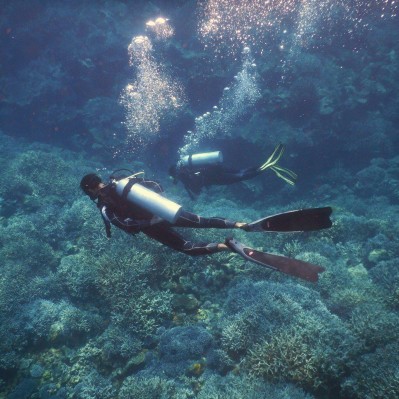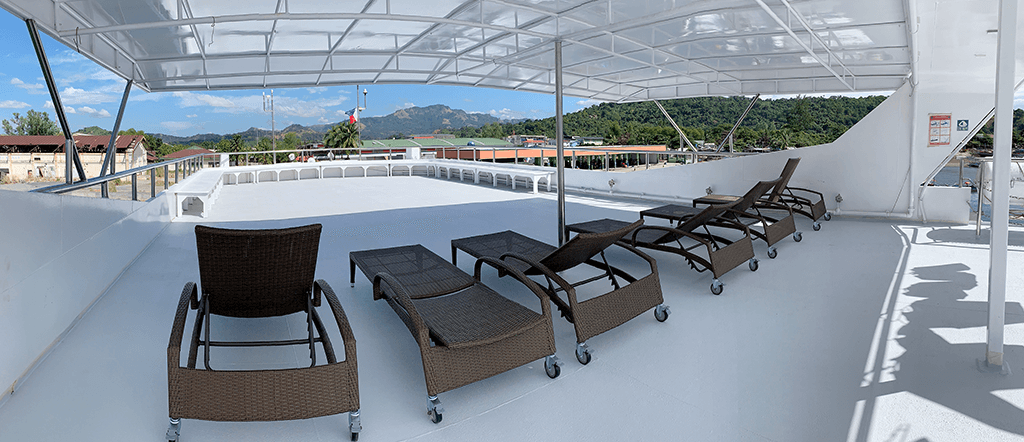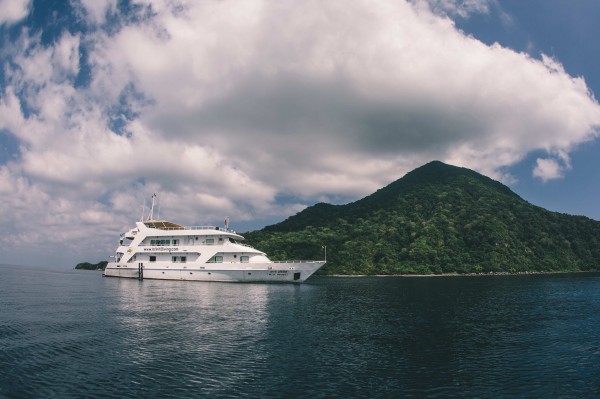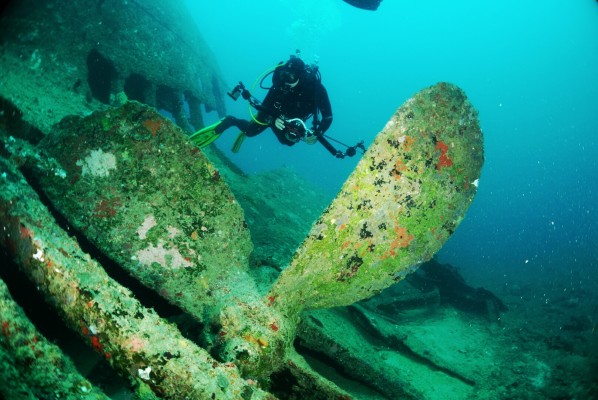World Health Day 2016

Health benefits of scuba diving
Did you know that scuba diving is an excellent way to improve physical and emotional health?
Controlled Breathing
Scuba divers are instructed to always breathe slowly and deeply during a dive so that the air in your tank will last longer and more time can be spent underwater. This deep steady breathing promotes a calm attitude and reduces the risk of a lung-expansion injury. It also increases lung capacity, strengthening of the respiratory system and draining of mucous. This in turn helps with the prevention of lung diseases and can actually improve existing ones such as asthma.
Scuba divers are instructed to always breathe slowly and deeply during a dive so that the air in your tank will last longer and more time can be spent underwater. This deep steady breathing promotes a calm attitude and reduces the risk of a lung-expansion injury. It also increases lung capacity, strengthening of the respiratory system and draining of mucous. This in turn helps with the prevention of lung diseases and can actually improve existing ones such as asthma.
The calm, relaxed state produced through deep, slow breathing and through focusing on your underwater environment, reduces stress and balances the nervous system. A relaxed, calm state of mind has been proven to promote a positive attitude and prevent depression.
Deep breathing also means increased oxygen intake. Increased body oxygen levels raise energy levels, stimulate circulation, improve heart and lung functions and mental capacities. With sufficient oxygen in the body, the need for intoxicants and stimulants diminishes.
Warm Climates with sunshine
Most divers enjoy visiting other countries or you may want to make diving part of your family holiday. So you will be likely to spend time in warm and sunny climates. Sunlight has been revealed to have important health benefits and aids in preventing ailments such as SAD, nutritional deficiencies and depression.
Sunlight supplies the body with Vitamin D which promotes the absorption of calcium and also transfers of calcium within the cells. This provides strength to the bones and increases endorphin production, boosts immune system health. Sunlight also helps to kill off bacteria and viruses therefore preventing infections. Have you ever noticed how people tend to be happier and friendlier in a warm climate?
Physical Fitness
Scuba diving on a regular basis steadily improves and maintains your general fitness and stamina levels. Exercising in water is very effective due to the natural resistance of water. Using your legs to fin at depth is great exercise and the sensation of being weightless makes it feel almost effortless. Any form of exercise improves cardio-vascular performance which translates into a reduced risk of heart attacks, strokes, circulatory problems and ailments in general.
Muscle tone and strength are also improved through movement through water but also the physical effort of carrying equipment such as your weight belt and diving gear. Increased muscle tone helps in relieving tension and improves ailments such as backaches.
The Watery Embrace
The emotional benefits of diving are many too. It is a well-known fact that watching fish in an aquarium has a relaxing affect on the mind. Compare that to actually being in that underwater environment and those calming effects are intensified. This is one of the reasons divers keep going back for more, they find it a great way to unwind, relax and forget about all the stresses of daily modern life.
Weightlessness has other benefits too. Flotation therapy is essentially a way of placing the body into a state of total relaxation. Floating weightless in a quiet atmosphere breaks down stress responses and allows the mind and body to rejuvenate themselves. The soothing effects of the buoyancy of water have similarities with the Eastern techniques of meditation. Some divers say that their time spent underwater captivated by the sights of fascinating marine life with the only noise being the sound of their own breathing, is like a form of meditation.
Interacting With Marine Life
The pure pleasure, wonder and awe of interacting with and being up close to amazing marine creatures produces a feeling of increased well-being. This feeling is heightened when we have an encounter with a species we feel a certain attraction to, or particular respect for, such as sharks or sea turtles. This produces within our nervous systems similar positive feelings as when we lavish affection on our cherished pets.
Watching different rainbow colours of reef fish also uplifts moods and emotions. Exposure to blue light has a calming, soothing effect that normalises high blood pressure. Color red on the light spectrum is filtered out by water within a few meters of depth producing a calming, mainly blue color in the underwater environment.
Life Lessons and Shared Experiences
When you dive, you meet other like-minded people who often become good friends – it’s easy to make friends among divers as you will find a sense of community among them. It's exhilarating to surface from a dive full of wonderful memories of your experience and then talk about and share them with good companions who are just as excited as you are! There is always a lot of smiling and laughter going on a live-aboard!
As a diver, you learn to be responsible for yourself and your buddy. You learn to stay calm at all times which will help you during stressful situations in every day life. In the beginning, learning to dive requires courage too but once you have more experience, you'll find diving physically and mentally relaxing.
The Feel-Good Factor
There is nothing better than the joy of finding yourself on the way to a dive site, full of anticipation for what you're about to experience under the water, with smiling faces all around you!
Scuba diving can be exhilarating, awe-inspiring, relaxing, calming, rejuvenating, fun and above all good for you! Your time spent underwater can be so fascinating that you become absorbed by the world around you, you relax and your worries just melt away. Diving, done right, can be very good for you!
Inputs from the Scuba Travel newsletter


